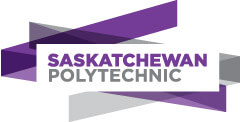About Commercial Pilot Diploma in Saskatchewan Polytechnic
Program Overview
Take to the skies with Saskatchewan Polytechnic’s award-winning* Commercial Pilot program, offered in partnership with the Saskatchewan Aviation Council (SAC). The growing aviation industry means qualified pilots are in demand—there’s never been a better opportunity to build your career as a commercial pilot.
The Saskatchewan Polytechnic/SAC Commercial Pilot program is one of the most innovative, highly-respected programs in Canada. When you graduate, you’ll have your Commercial Pilot Licence with multi-engine instrument rating or single-engine instrument rating.
*2001 Air Transport Association of Canada Innovation Award
The Commercial Pilot diploma program provides a strong foundation in the basic principles of aviation. You’ll alternate two ground school training sessions at Saskatchewan Polytechnic, Saskatoon Campus, Koyl Ave. with actual flying experience at your home flying school.
You’ll learn about:
- advanced aircraft systems and flight operations
- aircraft engines, instruments and pilot electronics
- aviation business, crew resource management and cultural awareness
- Canadian aviation regulations
- meteorology
- instrument flying
- navigation
- theory of flight
State-of-the-Art Flight Simulator
Saskatchewan Polytechnic's new Alsim flight simulator puts you in the pilot’s seat for take-off and landing at any airport in North America. Programmable real-life scenarios give you risk-free experience flying in all kinds of weather and dealing with emergencies and standard operating procedures. The simulator has 19 possible configurations including single engine, multi-engine, piston engine, turbine engine and jet aircraft.
Experience and Mentorship
Ground school classes are led by experienced instructors who know the aviation business. Your classes offer a unique opportunity to talk one-on-one with experienced pilots and other aviation professionals, getting an inside view on finding a job, building your career and developing your skills.
Your Career
Commercial aviation is expanding. There are job opportunities for qualified commercial pilots with charter and scheduled airlines, large corporations, courier companies, commuter airlines, flight schools, crop sprayers, aerial photography and survey companies, airline and airport administration and more. Your first job will probably be in a ground position with a smaller operator, where you’ll be expected to demonstrate commitment and professionalism as you work your way into flying positions.
Academic qualification equivalents:
- Grade 12 with a minimum 60% in each of the following subjects: English Language Arts A30, English Language Arts B30, Chemistry 30 and Pre-Calculus 30
English language requirements (one of the below):
- IELTS : Overall minimum score of Band 6.5 with a minimum score of 5.0 in each component.
- TOEFL : An overall minimum score of 81 on the Internet-based Test of English
- PTE : A minimum score of 63 with minimum component scores of 50.
Saskatchewan Polytechnic Highlights
| Type |
Public |
| Campus Setting |
Urban |
| Application mode |
Online and Paper mode available |
| Graduation rate |
62% |
| Acceptance rate |
96% |
| Number of Students |
16,008 |
| Overall cost of living |
14,762 CAD |
| Academic calendar |
Semester based |
| % of International students |
6% |
| Number of campuses |
4 |
| Medium of instructions |
English |
| Undergraduate Tuition fee |
14,044 CAD |
| Postgraduate Tuition fee |
16,426 CAD |
| Cost of living |
694 -1147 CAD per month |
Saskatchewan Polytechnic First-Year Tuition Fees And Living Expenses For International Students
Over the course of one academic year, the following graph displays tuition and living expense estimates in Canadian currency for one full-time international undergraduate student. Please bear in mind that these are only estimates; actual pricing will vary depending on your needs and preferences. Other factors to consider include currency changes, visa and study authorization fees, and vacations back home.
- For international students, the overall fees will range from:-
| Particulars |
Amount |
| Administrative fees |
50.00 to 150.00 CAD |
| Application fees |
150 CAD |
| Student association fee |
95.00 to 445.00 CAD |
| Non-refundable fee at the start) |
1,000 CAD |
| Tuition fee range |
6,195 to 18,089 CAD |
| Laboratory fee |
100.00 to 409.00 CAD with no fees for
some courses which do not have a lab service. |
| Books and Supplies |
200 to 3,725 CAD |
| Technology fee |
50 to 146 CAD |
- For a student of Saskatchewan Polytechnic the required financials (Cost of Attendance) can be:-
| Description of Financials |
Amount in CAD |
| Average cost of tuition |
11245.77 CAD |
| Cost of living |
10799.39 CAD |
| Application fee |
150 CAD |
| Estimated total (per year) |
22,195.16 CAD |
